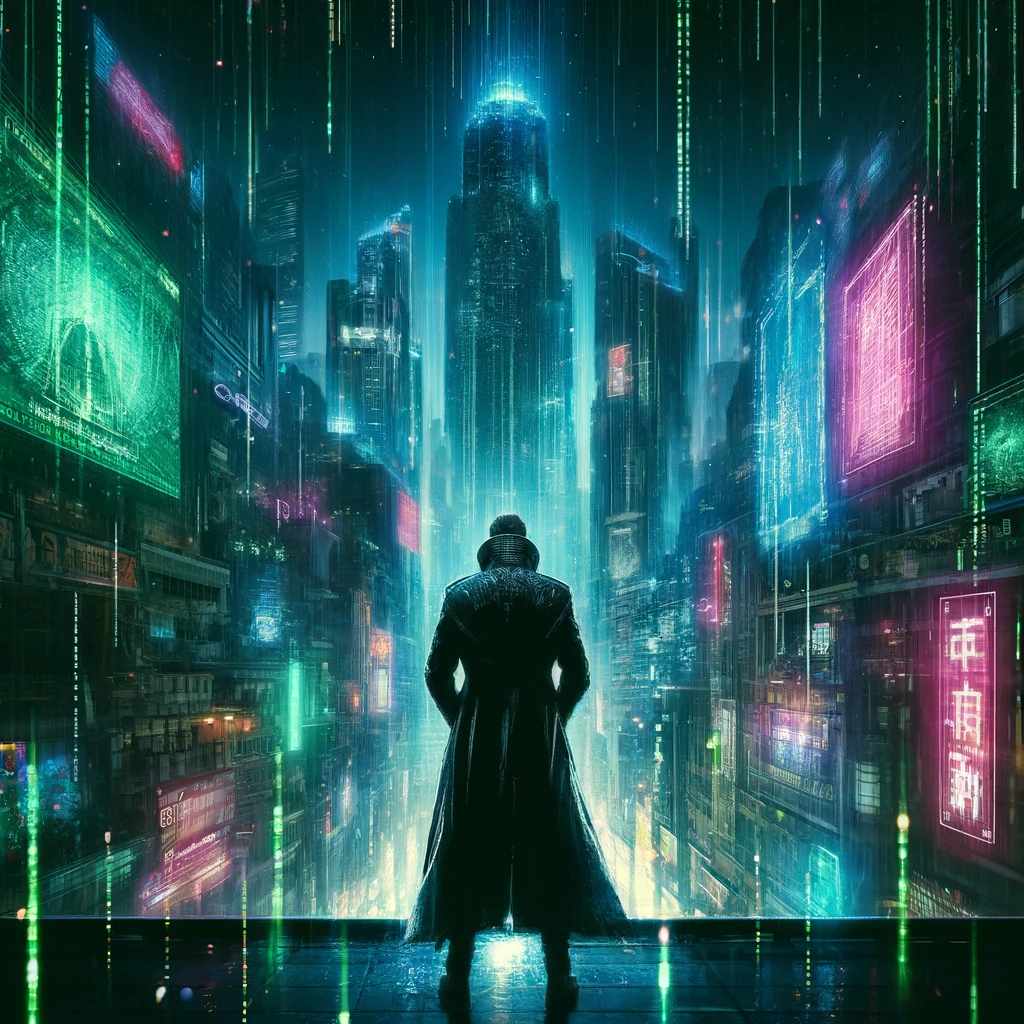
The Matrix film trilogy, a cinematic phenomenon that premiered at the dawn of the 21st century, has indelibly shaped the cyberpunk genre, intertwining with its core themes and aesthetics to create a groundbreaking narrative. Cyberpunk, a genre that burgeons from the seeds of high tech and low life, finds its quintessential expression in the Matrix films, weaving a complex tapestry that explores the relationship between humanity, technology, and reality.
At the heart of the Matrix trilogy is the concept of a simulated reality, the eponymous Matrix, where humans lead an oblivious existence while machines harvest their bodies’ energy. This central premise serves as a vehicle for exploring cyberpunk’s foundational themes: the blurring lines between the real and the virtual, the rebellion against oppressive systems, and the quest for identity in a technologically saturated society. The trilogy’s protagonist, Neo, embodies the cyberpunk hero, navigating a world where the distinction between human and machine becomes increasingly ambiguous.
The visual and thematic elements of the Matrix films draw heavily from cyberpunk’s rich iconography. Neon-lit cityscapes, rain-soaked streets, and the omnipresent glow of computer screens create a setting that feels at once futuristic and decayed, a hallmark of cyberpunk’s aesthetic. The characters, dressed in leather and sunglasses, move through this world with a sense of purpose that belies their outsider status, engaging in a high-stakes struggle against a seemingly all-powerful adversary.
The influence of the Matrix trilogy on the cyberpunk genre extends beyond its narrative and aesthetic contributions. It popularized cyberpunk themes among a global audience, sparking interest in the genre’s exploration of digital consciousness and artificial intelligence. The films’ depiction of a digital underworld populated by hackers, rebels, and AI entities has inspired a myriad of works in literature, film, and video games, cementing its status as a cultural touchstone.
Moreover, the Matrix trilogy prompts philosophical inquiry, a staple of cyberpunk thought. Questions of free will, the nature of reality, and what it means to be human are woven through the narrative, challenging viewers to consider their own relationship with technology. The films’ use of allegory and references to philosophical and religious texts deepen the narrative’s complexity, inviting audiences to ponder the implications of a digitally mediated existence.
The Matrix digital trilogy and the cyberpunk genre share a symbiotic relationship, each enriching the other’s narrative and thematic depth. The trilogy has contributed indelibly to the cyberpunk lexicon, offering a vision that is both a reflection of contemporary anxieties about technology and a prophetic imagining of future societies. In its exploration of digital worlds, the trilogy captures the essence of cyberpunk, highlighting the tensions between control and freedom, artificiality and authenticity, and the technological and the organic.
The Matrix movie trilogy stands as a monumental work within the cyberpunk genre, encapsulating its preoccupations with technology, identity, and society. Through its innovative storytelling, visual style, and philosophical undertones, the trilogy has not only defined a generation’s understanding of cyberpunk but also expanded the boundaries of the genre, inviting new interpretations and explorations. As technology continues to evolve and permeate every aspect of human life, the themes explored in the Matrix films and cyberpunk literature remain ever relevant, offering a lens through which to examine our increasingly digital world.